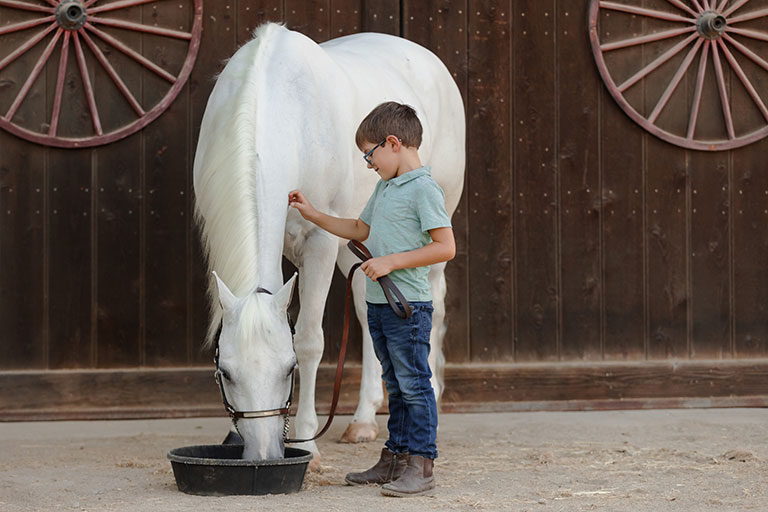Caring for senior horses requires special attention, especially when it comes to monitoring their weight. As horses age, they experience a variety of physical changes that can impact their health and well-being. Therefore, keeping a close eye on their weight is critical. This guide will delve into the importance of weight management for older horses and offer strategies for effectively monitoring weight in senior horses.

Why is Weight Monitoring Important?
As horses grow older, they can face issues such as dental problems, digestive inefficiencies, and reduced nutrient absorption, all of which can lead to weight fluctuations. Maintaining a healthy weight is crucial for their overall health and longevity.
Identifying Weight Issues
Recognizing weight issues early can prevent more serious health complications. Regularly checking your horse’s body condition score and keeping track of their weight through visual assessments and weighing can help identify any problems promptly.
Methods of Monitoring Weight
Using Weigh Tapes
Weigh tapes are a practical tool for horse owners. By measuring the girth of the horse, they provide an estimate of the horse’s weight. Although not as precise as a scale, they are a useful way to track weight changes over time.
Utilizing a Scale
The most accurate method of weight monitoring is using a livestock scale. While not always accessible, this method provides precise measurements that can be invaluable for managing your horse’s health.
Visual and Tactile Assessments
Regularly examining your horses physical condition can provide insights into their weight status. Feel for ribs, check the spine, and observe the horse’s overall body shape to assess their condition.
Factors Affecting Weight in Senior Horses
Nutrition and Diet
A balanced diet is essential. Senior horses may require specialized feeds that are easier to digest and provide the necessary nutrients to maintain a healthy weight. Learn more about appropriate exercise routines that complement their dietary needs.
Dental Health
Dental issues can hinder a horse’s ability to chew and digest food properly. Regular dental check-ups can help ensure your horse is able to consume and absorb the nutrients they need.
Exercise
Regular, low-impact exercise is important for maintaining muscle mass and a healthy weight. Consider stretching routines tailored for older horses.
Adjusting Care for Weight Changes
Weight Loss
If a horse is losing weight, it may require dietary adjustments, dental care, or medical evaluation to address underlying health issues. External resources can provide invaluable guidance.
Weight Gain
Excessive weight gain can lead to serious health problems. Adjusting diet and increasing physical activity can help manage this issue effectively.
Building a Weight Management Plan
A comprehensive weight management plan should include regular monitoring, appropriate nutrition, and a tailored exercise regimen. Consult with a veterinarian to develop a plan that meets your horse’s unique needs.
Monitoring Progress
Keep detailed records of your horses weight over time. This can help you and your veterinarian make informed decisions about their care.
Conclusion
Effective monitoring of weight in senior horses involves a combination of regular observation, proper nutrition, dental care, and exercise. By staying vigilant and proactive, you can help ensure your senior horse remains healthy and comfortable in their golden years.

FAQs
How often should I weigh my senior horse?
It’s recommended to weigh your horse or assess their body condition every 4-6 weeks.
What should I do if my horse is underweight?
Consult with a veterinarian to determine the underlying cause and adjust their diet accordingly.
Can senior horses gain weight too quickly?
Yes, rapid weight gain can strain their health. It’s important to manage their diet and exercise carefully.
This article contains affiliate links. We may earn a commission at no extra cost to you.
